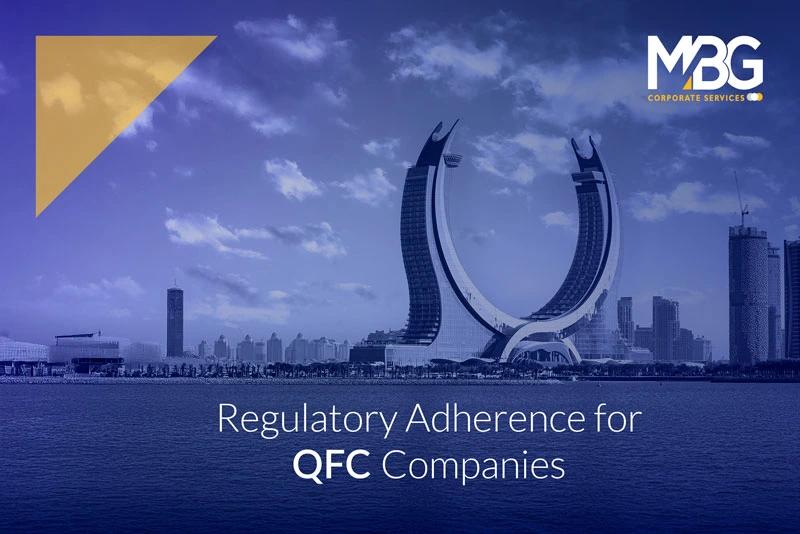The 2025 Compliance Imperative: Ensuring Regulatory Adherence for Qatar Financial Centre (QFC) Companies

Businesses operating in the Qatar Financial Centre (QFC) must contend with a compliance environment that is becoming more and more demanding as regulations around the world become stricter. Since we have already entered the second half of 2025, it is more crucial than even before to safeguard the financial credibility of the companies operating in Qatar.
The QFC, one of the Middle East’s most dynamic financial jurisdictions, offers businesses an attractive, business-friendly environment grounded in common law principles. However, this flexibility is accompanied by an evolving regulatory framework, designed to uphold transparency, accountability and international standards. As such, compliance should not be viewed as a mandatory checklist—it has become a necessity for companies.
Post-Registration Compliance
Following registration, Qatar Financial Centre companies are required to establish a compliance structure that meets the guidelines set by the Qatar Financial Centre (QFC). A formal compliance function must be set up to provide ongoing monitoring, implement effective internal controls and ensure responsiveness to applicable regulations for important sectors of the companies.
It is important to note that compliance obligations significantly depending on whether a company is engaged in regulated or non-regulated activities. Regulated firms, particularly those operating in financial services, must adhere to stricter and more exhaustive regulatory frameworks, including oversight from the QFC Regulatory Authority (QFCRA), while non-regulated firms follow comparatively simpler regimes.
Additionally, firms must also ensure timely license renewals, which are essential to maintain lawful operations and avoid penalties or suspension.
The post-registration compliances outlined herein represent only the preliminary set of obligations. Depending on the company’s licensed activity and the authority exercising oversight (such as the QFCRA or the QFC Authority), further compliance requirements may be imposed from time to time.
Moreover, firms should be prepared for audits, inspections, or reviews by relevant authorities, which are conducted to ensure that businesses remain compliant with both QFC regulations and broader international standards.
Key Annual Filing Requirements
1. Annual Return Filing:
The Annual Return is a mandatory yearly submission to the Company Registration Office (CRO), confirming the accuracy of your firm’s corporate information, including any changes to shareholding, directors, or registered details.. It also allows you to update any missed changes. Your Annual Return is due each year on your firm’s incorporation anniversary. The anniversary date may be amended through the QFC Client Portal, which will then set your new annual due date.
Deadline: The Annual Return must be filed within 28 days following the Reporting End Date, as stipulated in the QFC regulations.
2. Financial Statements (Accounts):
Firms must file Financial Statements in line with applicable regulations, based on their declared financial year. The format, content and filing obligations may vary depending on the legal structure and financial thresholds of the entity. Depending on the activity and classification, some firms may be required to submit audited statements, while other may be exempt or permitted to submit unaudited accounts.
Deadlines as prescribed under the QFC Regulations and Company Rules:
- LLCs & LLC(G)s: Within 21 days of the financial statements being approved at the General Meeting
- LLPs: Within 21 days of the financial statements being approved at the General Meeting
- Filing is without any cost and can be done through the QFC Client Portal.
Exemptions: Special Purpose Companies and passive Holding Companies (or entities that are wholly owned by the Government of the State of Qatar) are exempt from filing unless specifically requested by the CRO or QFC.
3. Annual UBO (Ultimate Beneficial Ownership) Report:
Firms are required to declare their Ultimate Beneficial Owners (UBOs) and disclose any nominee arrangements involving any shareholders or directors, in accordance with the QFC AML/CTF Rules. The UBO report must be submitted within 30 days of the date specified by the CRO-. This is a core component of QFC’s broader commitment to AML/CTF protocols.
4. Annual License Renewal:
In addition to the above, firms are required to renew their commercial license and any activity-specific permits annually. Timely renewal is critical to avoid late penalties, cancellation of commercial activities, or potential regulatory action.
5. Additional Filings for Regulated Entities:
Entities conducting regulated activities under the supervision of the QFC Regulatory Authority (QFCRA) may be subject to additional annual returns, AML/CTF compliance filings, or risk-based reporting. The scope of these requirements will depend on the firm’s licensed activities.
6. Inspections and Reviews:
Companies should be aware that the QFC and its regulatory bodies may conduct audits, reviews, or inspections of compliance documentation, financial records, or operational processes. Non-compliance or failure to cooperate during such audits may lead to penalties, warnings, or escalation of regulatory measures.
Consequences of Non-Compliance
Failing to follow the rules leads to costs that extend beyond monetary penalties. If a firm fails to abide by the regulations, their license could be withdrawn, their reputation can suffer and there could be an investigation from the concerned authorities. Since QFC is amplifying its enforcement activities in 2025, businesses should be risk-aware, remain vigilant of new regulatory developments, audit internal activities and work with foresight.
Set to move forward?
Ensuring regulatory adherence within the QFC framework is not a single undertaking—it is an ongoing commitment. As deadlines draw near, firms should assess their internal capabilities, invest in compliance infrastructure & seek professional advisory assistance in managing complex regulatory filings or addressing operational uncertainties.
QFC companies must meet QFC’s demands, as it is a legal rule and an indicator of development for financial institutions. The 2025 compliance calendar offers no margin for error—only a clear mandate for action. It’s time to act now.






